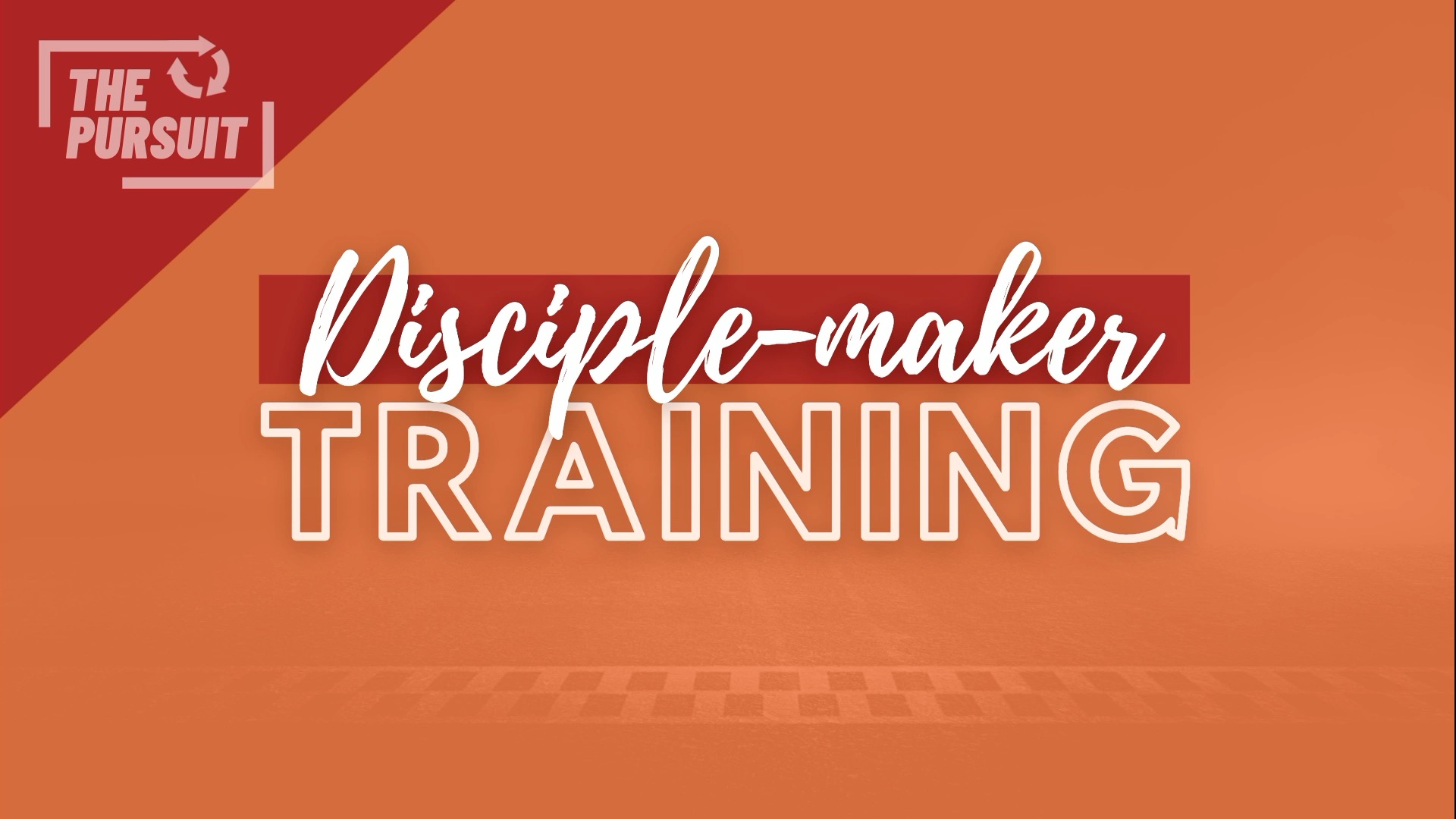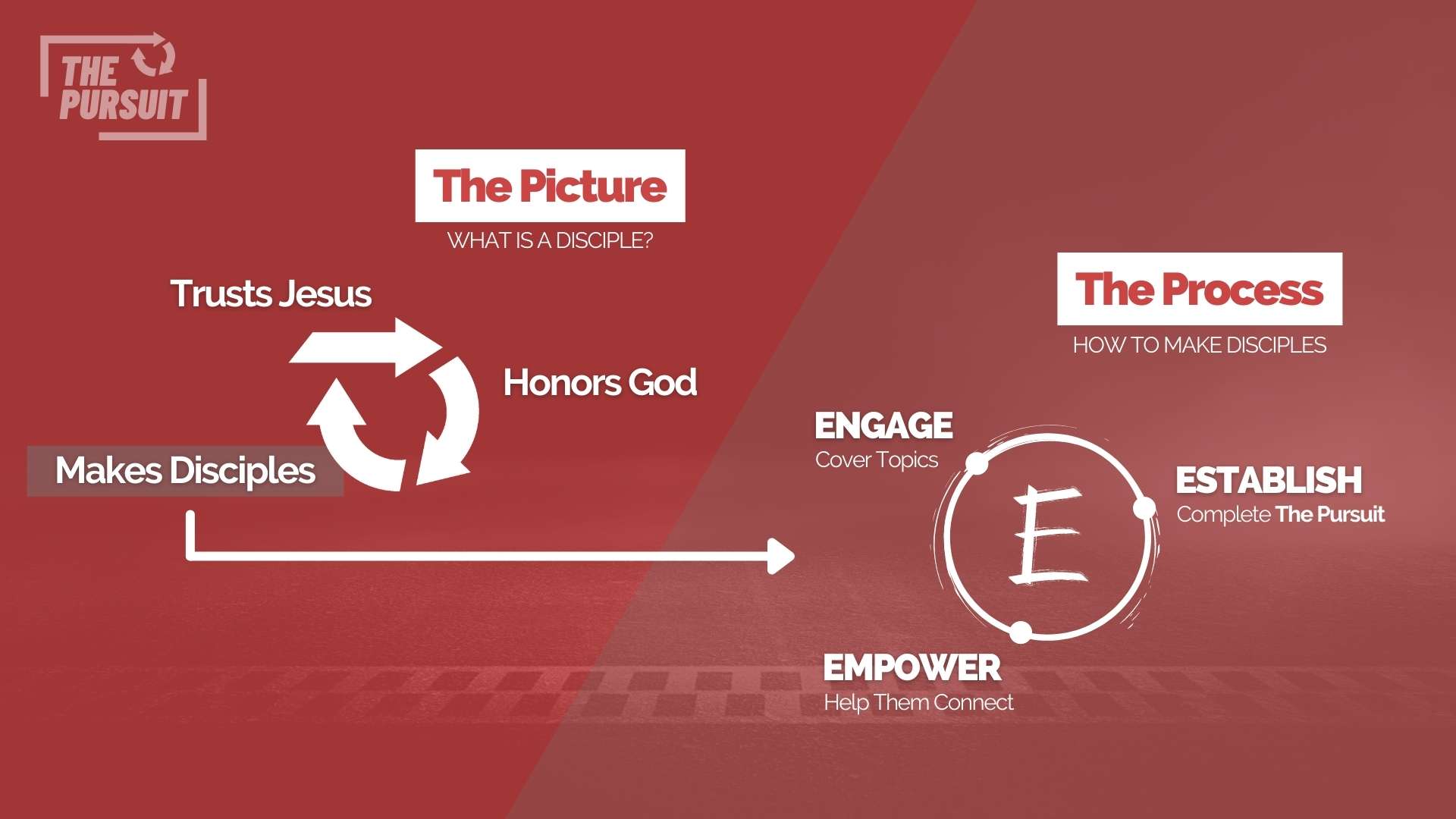Why Make Disciples?
Talking Points:
- We make disciples because Jesus said so. Matthew 28:18-20
- We make disciples because Jesus envisioned a church where pastors equip and people do the ministry. Ephesians 4:11-12
- We make disciples because people need help on a personal level. Matthew 9:36-37
Discussion:
- Read the talking points above as a group, including scripture references. What are your initial thoughts about these points or about the podcast lesson (see audio above)?
- Share about a person who has encouraged you in your pursuit of God. What did they do that was so impactful?
- Read Matthew 4:19. Why do you think Jesus picked fishermen instead of Pharisees as his disciples? Which group of people do you most relate to?
- Read Ephesians 4:11-12. What’s the pastor’s job in the church? What’s your job?
- Define “full circle” faith in your own words. Where are you on the circle?
- Do you think you can help someone else pursue God? Why or why not?
See Also:
How to Make Disciples
Talking Points:
- PursueGOD offers a simple 3-step strategy for conversational disciple-making.
- First, engage the person you’d like to disciple. Meet regularly to cover topics together as you build a relationship.
- Second, establish the person in the Christian faith. Complete The Pursuit together to learn the essentials of the Christian faith.
- Third, empower the person to become a disciple-maker. Help them get connected to someone else who needs a mentor.
Discussion:
- Read the talking points above as a group, including scripture references. What are your initial thoughts about these points or about the podcast lesson (see audio above)?
- Engage, Establish, Empower – which one seems the most difficult to you? Explain.
- Describe the three mentoring principles in your own words. Which one resonates most?
- Describe the pathway for disciple-making in your own words. What’s the point to taking someone through a discipleship track?
- Do you feel qualified to make disciples? If not, what would qualify you?
- Make a list of a few people who might be interested in going through a discipleship track with you. Begin praying for those people.
- To finish your training, cover this full discipleship track with a training partner or group. Take turns leading each topic, and be sure to track your progress. Then start discipling someone on your list.
See Also:
Disciplemaker Essentials
Talking Points:
- Ready to make disciples with the tools at pursueGOD.org? Remember these five important essentials, and then go out and start helping people pursue God!
- Commit to a real relationship. Discipleship is relationship, and none of this matters if you don’t care about the person you’re mentoring. John 15:12-17
- Share the right truth at the right time. Pay attention to the kinds of topics that they need to talk about, and don’t cram your favorite conversations down their throats. Luke 12:12, 1 Corinthians 2:14
- Just do your part, not God’s. You can’t make someone else pursue God; just walk alongside them and keep showing up, even if they don’t! Acts 8:29
- Point it all to Jesus. Remember, you’re not just helping someone become a better person; you’re helping them meet Jesus.
- Pray, pray, pray. Keep a prayer journal and make a habit of praying for the people you are mentoring – and let them know you’re doing it.
Discussion:
- Initial reactions to this topic? What jumped out at you?
- What are some ways you can show your mentee that your relationship with them matters more than the content you’re covering? Make a list.
- Share about a time when someone shared the right truth at the wrong time. How did it make you feel? How could they have timed it differently so you had ears to hear?
- What’s your part in a mentoring relationship? What’s their part? What’s God’s part? How does knowing this information take the pressure off of you as a mentor?
- For someone who hasn’t had their defining moment of faith, how do you know when it’s time to point them to Jesus?
- How would it make you feel to know that your mentor was regularly praying for you?
- Is there a step you need to take based on today’s topic?
See Also:
Find additional training topics in the #Mentors tab on this series page.
- Posts not found




